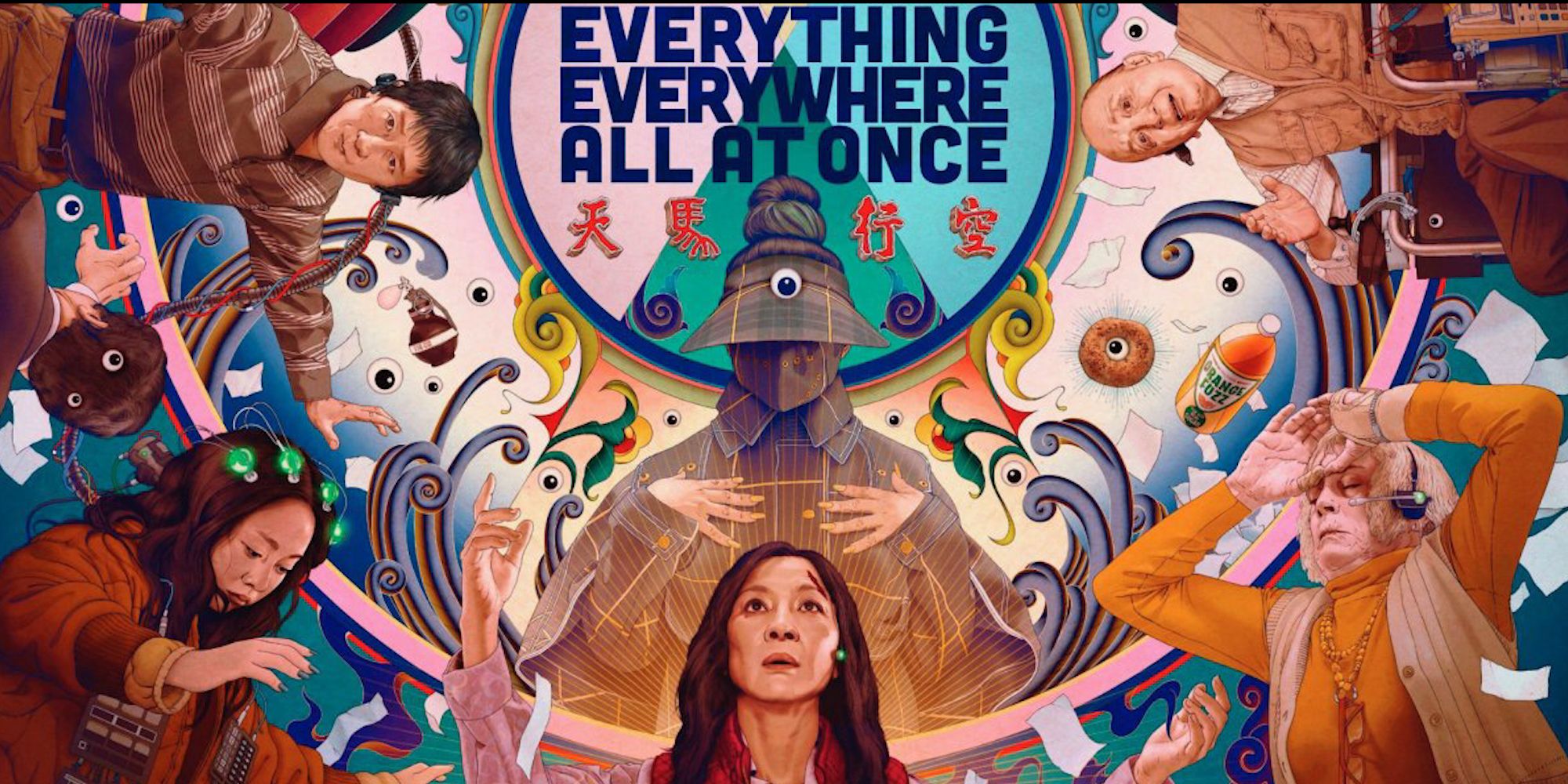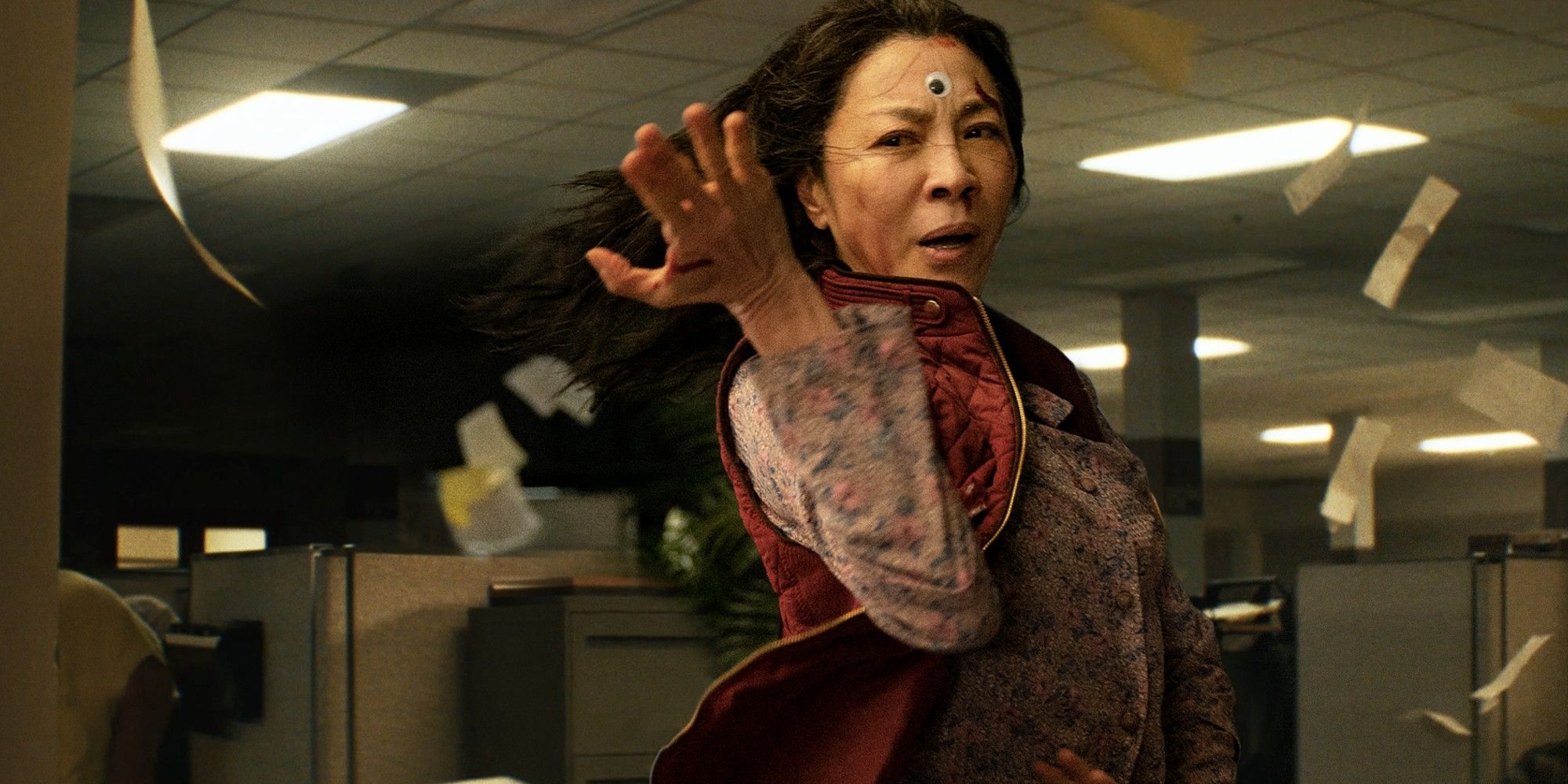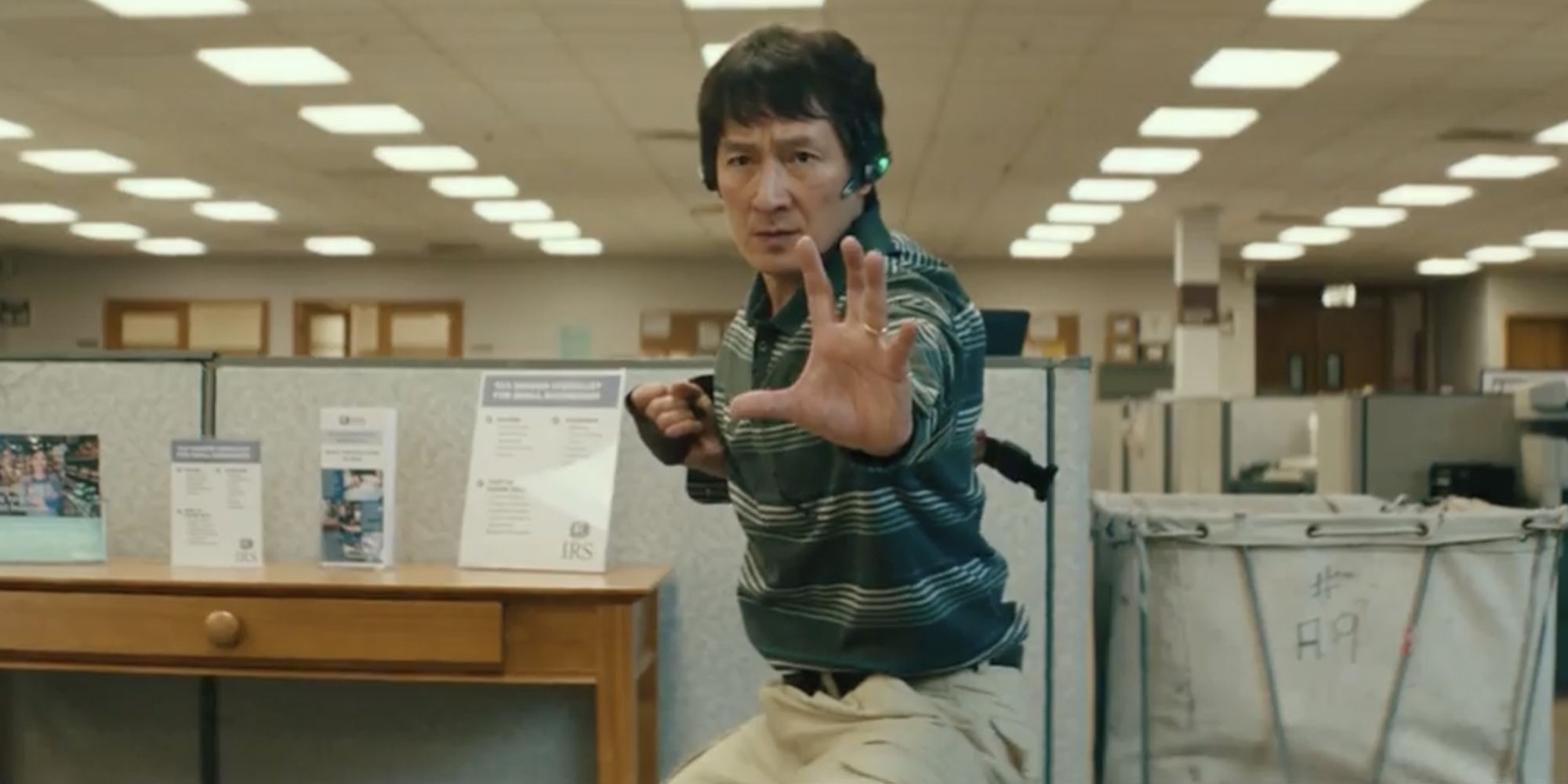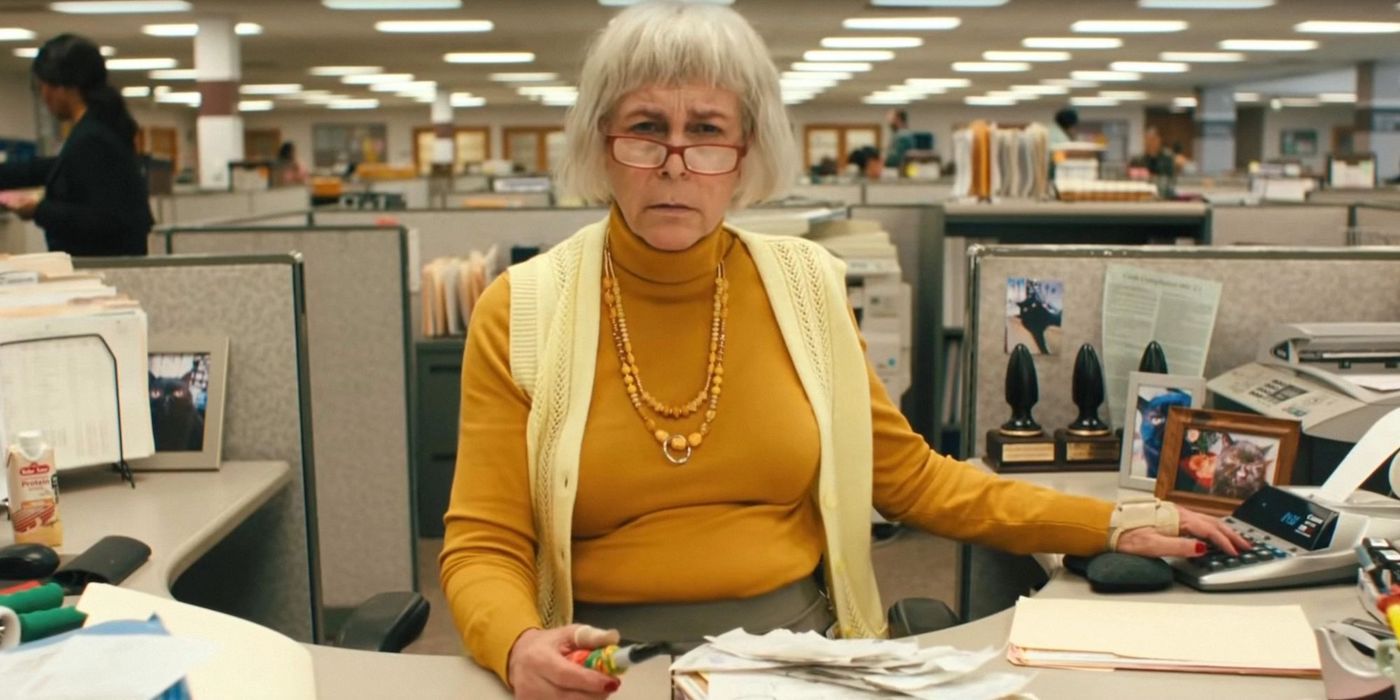On April 8, 2022, movie theaters in America saw the wide release of Everything Everywhere All at Once, a new film from the directing duo of Daniel Kwan and Daniel Scheinert. While only having two feature films under their belt, they established enough of a reputation for their highly idiosyncratic taste. So, their latest film about a middle-aged woman and her outlandish adventure across various dimensions where she sees the alternate lives she could be living is nothing unexpected from the Daniels. However, no one could have expected the film to garner so much attention from the Academy Awards. That is until the film became a surprising word-of-mouth hit, carried momentum to awards seasons, and ended up with a whopping 11 Oscar nominations, the most of any film this year. This scenario feels like it could have only occurred in one of the film's multiverses, but somehow, Everything Everywhere All at Once is a legitimate contender for Best Picture.
Evelyn Wang (Michelle Yeoh) is a Chinese immigrant running a laundromat who is overworked and is struggling to maintain a healthy relationship with her husband, Waymond (Ke Huy Quan), daughter, Joy (Stephanie Hsu), and father, Gong (James Hong). Her business is on the brink of failure and is forced to deal with a cranky IRS auditor, Deirdre (Jamie Lee Curtis). If this film was "straightforward" in its style and text, this kind of film being heavily recognized by the Academy would be a pleasant surprise. The awards body has been criticized in recent years for its lack of diversity among voters and recognition of films made by and about people of color, and while there is still room for growth, the success of the film in the nominations department is a step in the right direction. Now, throw in the aspect surrounding Evelyn's exploration across the dimensions of the multiverse, and the film's prestigious honors grow even more baffling.
'Everything Everywhere All at Once' Takes a Different Approach to the Multiverse
What makes its Oscar contention even more shocking is the film's simultaneous utilization of genre storytelling along with the grounded framework of the plot synopsis. A New York Times review of the film cited the boldness of it as a "swirl of genre anarchy." The Daniels sampled elements of surrealist comedy, science fiction, fantasy, martial arts, and anime into one melting pot of extravagant cinema. Genre movies tend to not fare well with Oscar success, but somehow, this film's mixtape of populist forms captivated voters more so than an autobiography about the love of cinema from Steven Spielberg, one of the biggest Hollywood success stories in recent years in Top Gun: Maverick, or a long-awaited sequel to Avatar. This is primarily because the Daniels' vision is a clearly defined and powerful directorial statement and not a messy cascade of ideas on a script. With their currently standing magnum opus, there will be no mistaking what a Daniels picture will be in the future, with their own trademarked visual and thematic ideas.
Everything Everywhere is versatile in its forms of audience appreciation. It can be viewed as a sheer piece of entertainment or a beautifully strange examination of philosophy and the state of being. For as idiosyncratic as the Daniels' vision is, there is something for everyone to enjoy or at least be fascinated by. The film is an accumulation of the booming audience enchantment of multiverses in popular media. In fact, the Daniels feared that, when writing the film, they missed their window to cash in on their interest in the multiverse after the release of the critically acclaimed Spider-Man: Into the Spider-Verse in 2018. Four months before the release of Everything Everywhere, No Way Home became the second Spider-Man movie to explore the realms of the multiverse. While the MCU film inundated itself with components of the multiverse to exploit the monetary value of the Spider-Man property, the Daniels utilized it to push the boundaries of a film's visual aesthetic. The film tested the limits of the form of film by blending it with the artistic style of anime and comics.
Michelle Yeoh and Ke Huy Quan Finally Get Recognition
Perhaps to the fault of the Academy Awards, Everything Everywhere took advantage of their tendency to fully honor actors in the later years of their careers. The film and character of Evelyn are the ultimate appreciation of Michelle Yeoh's remarkable career as an actor. If she were to claim a victory for her first-ever nomination at this year's Oscars, it would resemble the "career achievement" honors of the past for great actors who receive Oscars later in life, but her performance in Everything Everywhere is the total package of her talents. She carries the physical presence of the martial arts and fantastical sequences and emotional weight to the story's ideas of family and identity. The Oscars are also fond of comeback stories, and Ke Huy Quan certainly fits that mold. Twenty years ago, he retired as an actor after experiencing difficulty obtaining roles, and he is now the front-runner to win Best Supporting Actor for his role as Evelyn's husband who lives as a thriving individual in the multiverses. Despite the honoring of Yeoh being a correction of previous snubs, EEAAO is a film of contemporary stylistic and thematic sensibilities, and the recent influx of a younger and diverse voting body signals an awareness of the contemporary. As an added bonus, Stephanie Hsu and Jamie Lee Curtis get recognition from the Academy for their remarkable supporting work in the film, also for the first time.
An Endearing Message at the Heart of 'Everything Everywhere All at Once'
At the heart of Everything Everywhere All at Once, when looking past the impressive visual effects, editing, and genre-blending, is a deeply human story about family and benevolence. The wholesome values of the film that come to fruition towards its closing moments are the secret ingredient to its Oscar success. After a hectic journey through the multiverse, Evelyn learns that love and kindness towards her family is the key to her frustrations in midlife. While the film vows to tackle complex themes of existentialism and the generational identity of Asian Americans, its overarching message is undoubtedly wholesome, and that is traditionally appealing to voters. Genre films of this caliber, ones that are founded upon fantastical concepts, are almost exclusively relegated to technical awards. The fact that EEAAO is competing for all the major awards, acting, writing, directing, and Best Picture, is a miracle and is a testament to the film's endearing message in the context of the deep-seated cynicism that lingers over society today. When looking past the pomp and circumstance of the genre sampling and unique visual style, the warm heart of Everything Everywhere All at Once is how the film from the Daniels became a major awards contender.




